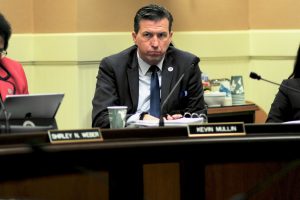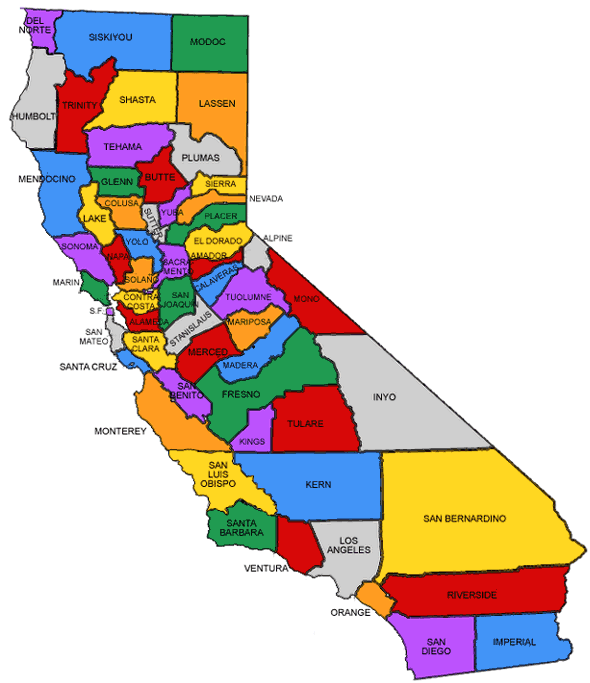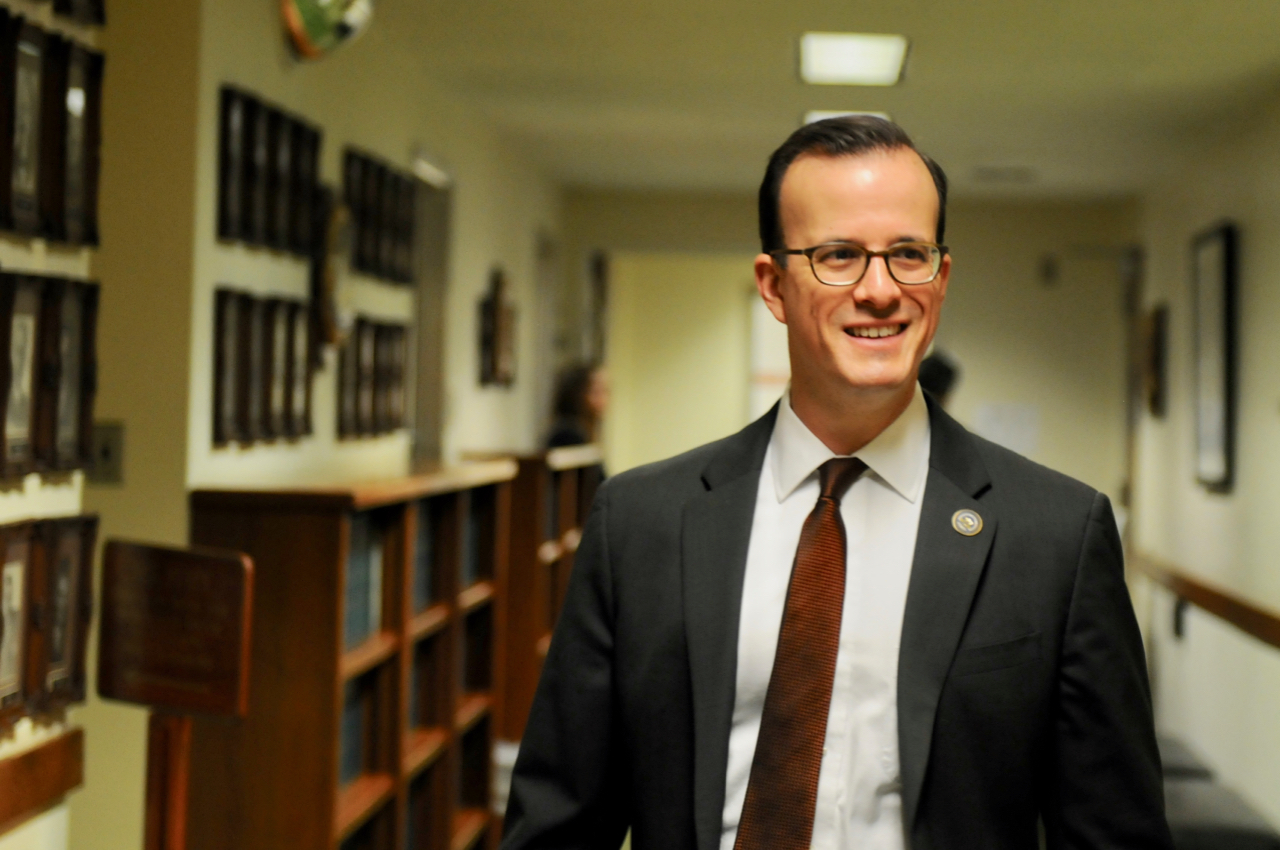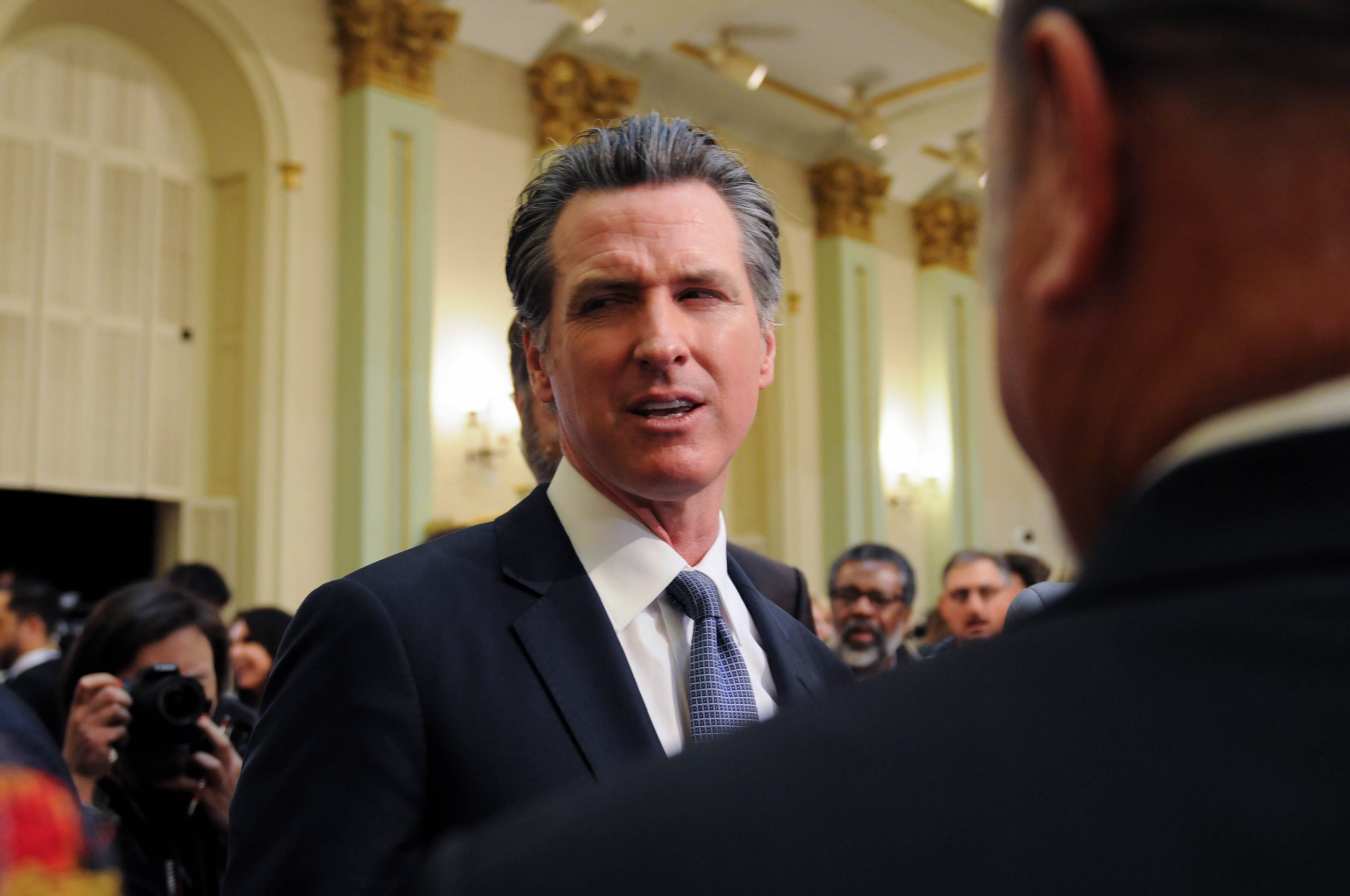
Senator Sabrina Cervantes. (Kevin Sanders for California Globe)
Political Ad Text Messages Will Now Need To Disclose Who Is Paying For Them In California
AB 201 will also set standards on how political text message ads can be designed.
By Evan Symon, September 12, 2019 6:01 pm
Assembly Bill 201, which will have all political text messages to disclose who the committee and their top contributors are in the the text, was passed by the state Senate Wednesday 34-1.
Authored by Assemblymembers Sabrina Cervantes (D-Corona) and Kevin Mullin (D-South San Francisco), the bill includes language designed to have fewer messages go out. Political text message ads in the future will need to include the words “Paid for by” or “With”, along with the name of the committee who paid for the text, or a link to their web page.

AB 201 will also have the ads include the names of the top funders contributing $50,000 or more to the committee sending the ads. In addition, the bill includes language on how contributor and committee information must be above a certain font size.
The bill has had a rocky several months, being amended several times. Initially AB 201 would have changed the language of AB 249, a 2017 bill made into law that set the standards for text ads. The original language on AB 201 would have hidden who was behind the text messages. This drew the attention of voter watchdog groups such as the California Clean Money Campaign, who subsequently spoke out against the bill.
“We must reluctantly but strongly oppose AB 201 in its current form,” the CCMC said in a statement in June. “It will significantly weaken the DISCLOSE Act for ballot measure and independent expenditure text messages ads, thereby allowing campaigns to effectively hide from voters who is communicating with them.”
During the last few months it drew the attention of Assemblywoman Cervantes who changed the language of the bill to have political text messages include that information.
An aide to Assemblywoman Cervantes told the Globe, “She saw the need to make the correct changes to make it transparent to all voters receiving texts.”
Other supporters have also pointed to the growing number of robocalls and robotexts, which have turned many citizens off to the idea. Political robotexts hit a peak during the 2018 elections. Many Californian citizens subsequently let their elected officials know their displeasure of the texts. As an Assembly staffer in Sacramento pointed out to the Globe, many hope to dissuade political advertisers in the coming elections by automatically including the committees, and their top donors, on text messaging ads.
After the change, the bill garnered more support, including winning back support of those same watchdog groups that initially opposed it.
The bill still faces some opposition, notably from political committees who stress anonymity and Senator. Bob Archuleta (D-Pico Rivera), was the lone ‘no’ vote in the Senate who disagreed on the language in the bill. However, ever since the wording changes to AB 201, the number of people and groups wanting the bill to not pass have dwindled.
AB 201 is currently awaiting either the signature or the veto of Governor Gavin Newsom.
- Bill to Require Law Enforcement Disclosure if AI Was Used To Help Write Reports - August 7, 2025
- Gov. Newsom Files FOIA Request To ‘Expose True Cost’ Of L.A. Federal Troop Deployment for Anti-ICE Riots - August 6, 2025
- California Redistricting: How Newsom’s Plan Will Demolish Hard Fought GOP Gains - August 6, 2025





One thought on “Political Ad Text Messages Will Now Need To Disclose Who Is Paying For Them In California”